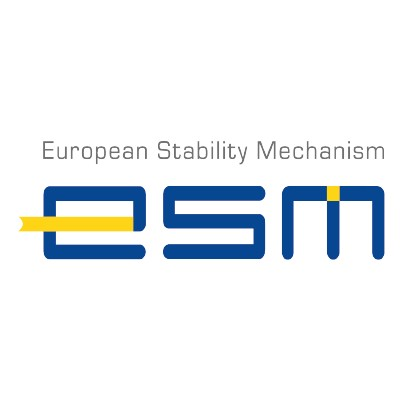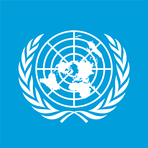The Crucible of Change: Lessons from Singapore for South Africa’s Economic Future
June 18, 2025, 5:12 am

Location: Belgium, Brussels-Capital, Brussels
Employees: 1001-5000
Founded date: 1958
Total raised: $310.85K

Location: United States, New York
Employees: 10001+
Founded date: 2002
Total raised: $500M
In the grand theater of global economics, South Africa finds itself in a disheartening act. The curtain rises on a stage marked by stagnation, where the actors—politicians, businesses, and citizens—struggle to find their roles. The backdrop is a landscape of high unemployment, poverty, and a sluggish economy. The question looms large: why can’t South Africa emulate the success of nations like Singapore?
The answer lies in a tale of two countries. Singapore, once a fledgling nation, has transformed into a global economic powerhouse. South Africa, on the other hand, is caught in a web of regulations and policies that stifle growth. The difference? A strategic vision and the courage to adapt.
South Africa’s economy grew by a mere 0.1% in the first quarter of 2025. This is not growth; it’s a crawl. With an official unemployment rate climbing to 32.9%, and a staggering 43.1% when including those who have given up searching for work, the situation is dire. The country is like a ship adrift in a storm, with no captain at the helm.
In contrast, Singapore’s economy has surged. From a GDP of $300 billion in 2013, it has soared to $500 billion by 2024. This remarkable turnaround is not a stroke of luck; it is the result of deliberate and strategic planning. Singapore’s government focused on three pillars: skills development, language proficiency, and a zero-tolerance policy for corruption.
Skills are the lifeblood of any economy. Singapore recognized this early on. The nation imported talent and expertise, creating a foundation for its workforce. Programs like SkillsFuture promoted lifelong learning, ensuring that citizens were equipped for the demands of a changing job market. South Africa, however, has taken a different path. Instead of attracting skilled workers, it is exporting its talent. The UN reports a steady outflow of skilled South Africans, with over a million leaving by 2024. This brain drain is a slow poison, crippling the nation’s potential.
Language is another critical factor. Singapore adopted English as its lingua franca, breaking down barriers to trade and communication. This decision opened doors to global markets. In South Africa, the approach is muddled. Policies like the Bela Bill threaten to limit English proficiency, undermining the very foundation of business communication. In a world where English dominates, this is akin to sailing without a compass.
Corruption is the third pillar of Singapore’s success. By ensuring transparency and integrity in governance, Singapore has built trust. Politicians are well-compensated to deter unethical behavior. In South Africa, corruption festers like an untreated wound. The lack of accountability has eroded public trust and stifled investment. The economy cannot thrive in an environment where corruption is tolerated.
The lessons from Singapore are clear. South Africa must shift its focus from political posturing to economic pragmatism. The current policies, such as broad-based black economic empowerment (B-BBEE), while well-intentioned, often hinder growth. The aim should be to create an environment where businesses can flourish, leading to job creation and economic expansion.
The informal economy in South Africa is a testament to the resilience of its people. Millions are earning a living outside the formal sector, yet this is not a sustainable solution. The informal economy is like a patchwork quilt—colorful but fragile. It relies heavily on the success of the formal economy. Without a robust formal sector, the informal economy cannot thrive.
As the world becomes increasingly competitive, South Africa risks being left behind. Countries like China and India are aggressively pursuing growth, while South Africa appears stagnant. The government must prioritize economic growth above all else. This requires a radical rethinking of policies that currently stifle progress.
The time for change is now. South Africa must learn from Singapore’s playbook. It needs to invest in skills development, embrace English as a key business language, and eradicate corruption. These are not just lofty ideals; they are essential steps toward a brighter economic future.
The stakes are high. The future of millions hangs in the balance. South Africa has the potential to rise from the ashes of stagnation, but it requires bold leadership and a commitment to change. The nation must stop being a prisoner of its past and start envisioning a prosperous future.
In conclusion, the path to economic recovery is fraught with challenges, but it is not insurmountable. By adopting a strategic approach similar to Singapore’s, South Africa can unlock its potential. The time for action is now. The nation must chart a new course, one that leads to growth, opportunity, and a brighter tomorrow for all its citizens. The world is watching, and the time to rise is now.
The answer lies in a tale of two countries. Singapore, once a fledgling nation, has transformed into a global economic powerhouse. South Africa, on the other hand, is caught in a web of regulations and policies that stifle growth. The difference? A strategic vision and the courage to adapt.
South Africa’s economy grew by a mere 0.1% in the first quarter of 2025. This is not growth; it’s a crawl. With an official unemployment rate climbing to 32.9%, and a staggering 43.1% when including those who have given up searching for work, the situation is dire. The country is like a ship adrift in a storm, with no captain at the helm.
In contrast, Singapore’s economy has surged. From a GDP of $300 billion in 2013, it has soared to $500 billion by 2024. This remarkable turnaround is not a stroke of luck; it is the result of deliberate and strategic planning. Singapore’s government focused on three pillars: skills development, language proficiency, and a zero-tolerance policy for corruption.
Skills are the lifeblood of any economy. Singapore recognized this early on. The nation imported talent and expertise, creating a foundation for its workforce. Programs like SkillsFuture promoted lifelong learning, ensuring that citizens were equipped for the demands of a changing job market. South Africa, however, has taken a different path. Instead of attracting skilled workers, it is exporting its talent. The UN reports a steady outflow of skilled South Africans, with over a million leaving by 2024. This brain drain is a slow poison, crippling the nation’s potential.
Language is another critical factor. Singapore adopted English as its lingua franca, breaking down barriers to trade and communication. This decision opened doors to global markets. In South Africa, the approach is muddled. Policies like the Bela Bill threaten to limit English proficiency, undermining the very foundation of business communication. In a world where English dominates, this is akin to sailing without a compass.
Corruption is the third pillar of Singapore’s success. By ensuring transparency and integrity in governance, Singapore has built trust. Politicians are well-compensated to deter unethical behavior. In South Africa, corruption festers like an untreated wound. The lack of accountability has eroded public trust and stifled investment. The economy cannot thrive in an environment where corruption is tolerated.
The lessons from Singapore are clear. South Africa must shift its focus from political posturing to economic pragmatism. The current policies, such as broad-based black economic empowerment (B-BBEE), while well-intentioned, often hinder growth. The aim should be to create an environment where businesses can flourish, leading to job creation and economic expansion.
The informal economy in South Africa is a testament to the resilience of its people. Millions are earning a living outside the formal sector, yet this is not a sustainable solution. The informal economy is like a patchwork quilt—colorful but fragile. It relies heavily on the success of the formal economy. Without a robust formal sector, the informal economy cannot thrive.
As the world becomes increasingly competitive, South Africa risks being left behind. Countries like China and India are aggressively pursuing growth, while South Africa appears stagnant. The government must prioritize economic growth above all else. This requires a radical rethinking of policies that currently stifle progress.
The time for change is now. South Africa must learn from Singapore’s playbook. It needs to invest in skills development, embrace English as a key business language, and eradicate corruption. These are not just lofty ideals; they are essential steps toward a brighter economic future.
The stakes are high. The future of millions hangs in the balance. South Africa has the potential to rise from the ashes of stagnation, but it requires bold leadership and a commitment to change. The nation must stop being a prisoner of its past and start envisioning a prosperous future.
In conclusion, the path to economic recovery is fraught with challenges, but it is not insurmountable. By adopting a strategic approach similar to Singapore’s, South Africa can unlock its potential. The time for action is now. The nation must chart a new course, one that leads to growth, opportunity, and a brighter tomorrow for all its citizens. The world is watching, and the time to rise is now.